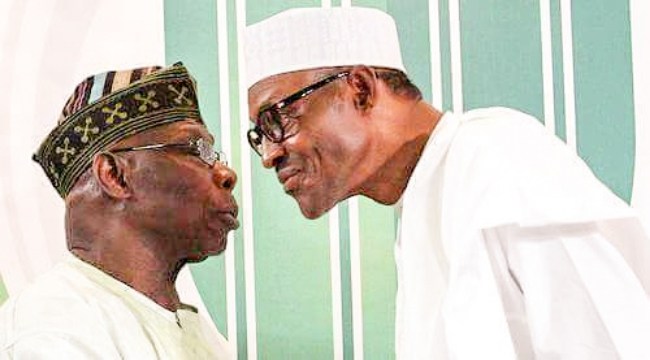Two Nigerian Presidents who doubled as Ministers of Petroleum Resources have dilly dallied in the petroleum industry for years, Straightnews investigation has shown.
Recall that General Olusegun Obasanjo was Nigeria’s head of state from 1976 to 1979, Major-General Muhammadu Buhari was the Federal Commissioner of Petroleum and Natural Resources for the same period.
Olusegun Obasanjo, who was President from 1999 to 2007, made himself the Minister of Petroleum Resources but relinquished that position in January 2007.
Similarly, President Buhari who started ruling the country from 2015 till date appointed himself as a Minister of Petroleum Resources, while Dr. Mikanti Baru is serving as the Group Managing Director of NNPC, Straightnews has learnt.
In a book, entitled Too Good to Die: Third Term and the Myth of the Indispensable Man in Africa, Obasanjo is said to have superintended over the affairs of Nigerian National Petroleum Corporation, NNPC for eight years and disregarded due process on several occasions in running the corporation.
The book also accused ex-President for allegedly bypassing the National Assembly on issues of funding and failing to render proper accounts of oil revenue to relevant agencies like the Revenue Mobilization, Allocation and Fiscal Commission, RMAFC.
The author, Prof. Chidi Odinkalu, former chairman of the National Human Rights Commission, NHRC, and Ayisha Osori, author of Love Does Not Win Elections, said Obasanjo was “ultimately responsible for all the decisions made affecting the petroleum sector.”
He is said to have run the Nigerian National Petroleum Corporation, NNPC, as a “sole administrator” for the eight years he led the country.
“The former President, while serving as Minister of Petroleum Resources, never discussed activities of the corporation with government officials until his last days in office,” thre book stated.
“The only official Obasanjo had in a similar capacity was Edmund Daukoru, his presidential adviser on petroleum and energy, whom he later made Minister of State for Petroleum Resources in 2005,” the authors stated.
They told of how he secured approval for all his dealings as petroleum minister in one fell swoop, during one of the last Federal Executive Council meetings.
The authors wrote: “In one of the last working sessions of the cabinet in May 2007, Obasanjo required cabinet to give retrospective approval to all the measures he had taken over the eight years in which he acted as sole administrator of Nigeria’s oil industry.
“Cabinet duly obliged him after recording Vice-President Atiku Abubakar’s objection. For this purpose, each minister received his share of the documents they were required to approve in a Ghana-must-go bag.
”None had the capacity to process or read them. The approval was pro-forma,” the book recounted.
According to the book, while Obasanjo served as minister of petroleum resources, NNPC operations were reportedly shrouded in secrecy with little or no accountability in place.
While serving as military head of state in 1977, Obasanjo had set up a tribunal to investigate the operations of the Nigerian National Oil Company, NNOC, which metamorphosed into NNPC.

